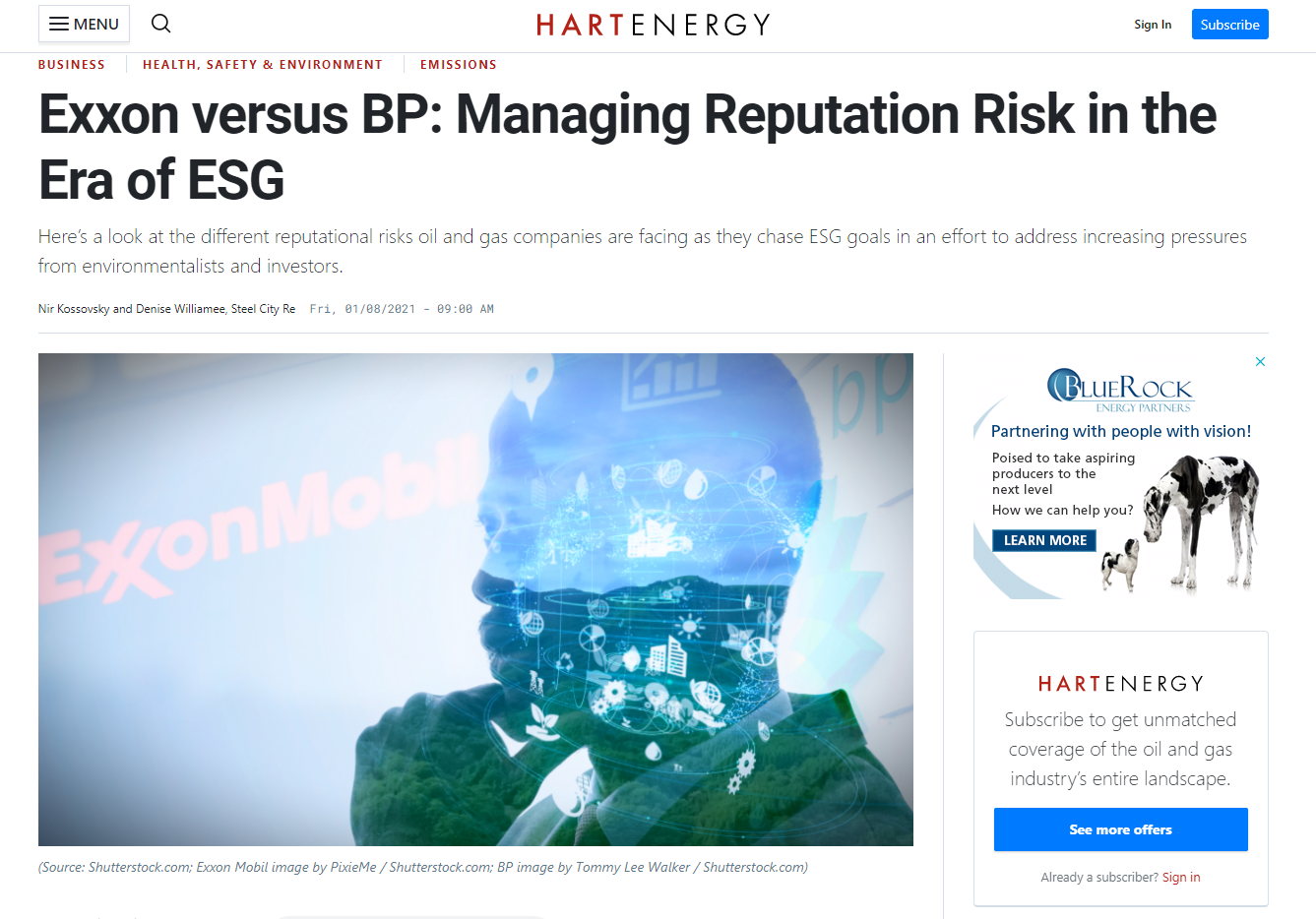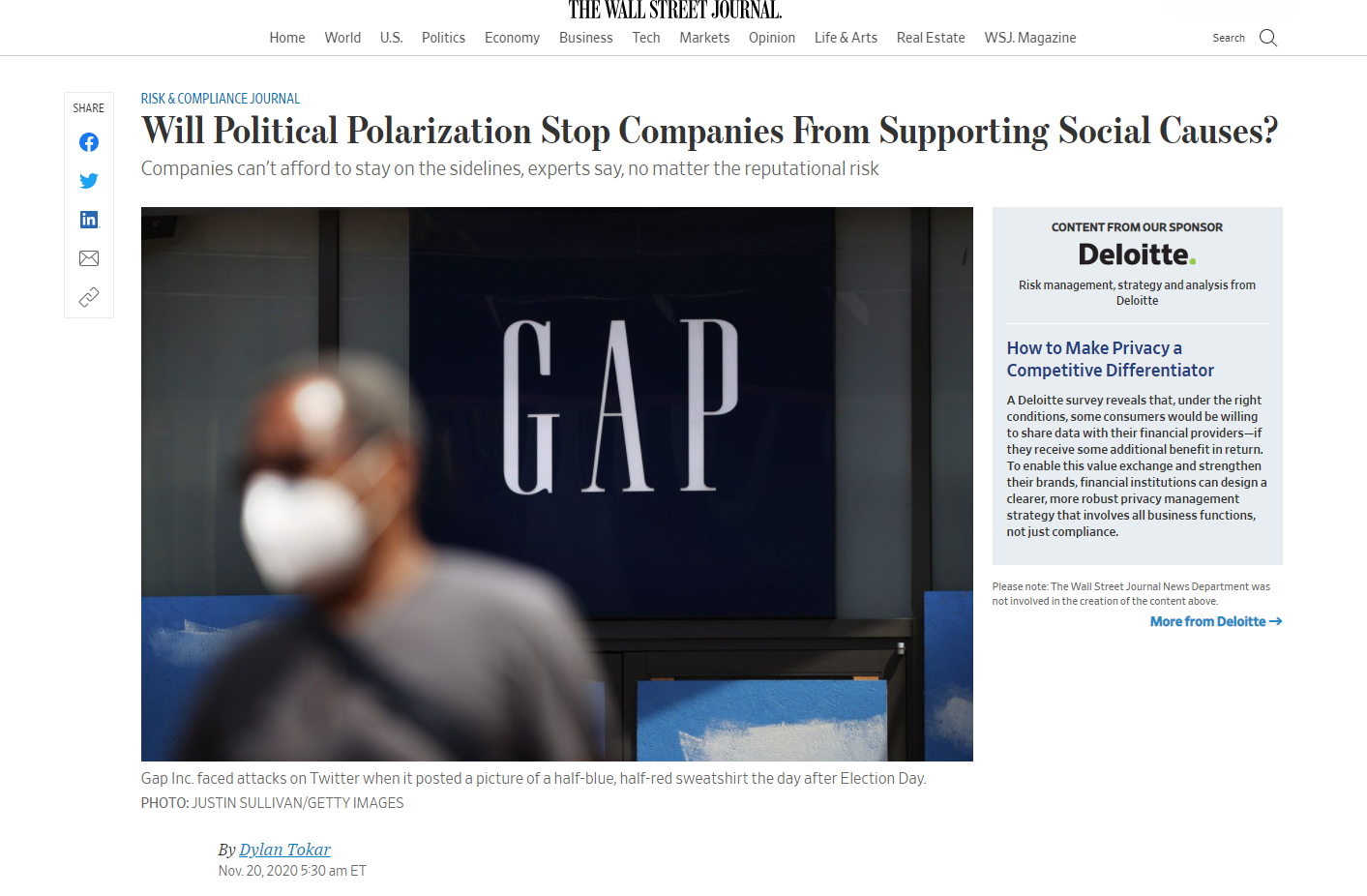Exxon versus BP: Managing Reputation Risk in the Era of ESG

Nir Kossovsky and Denise Williamee of Steel City Re, an AC Client, publish a piece in Hart Energy about the different reputational risks oil and gas companies face as they chase ESG goals.
Compare BP’s statements and actions to those of Exxon Mobil Corp., whose pledges have been more modest and measured—cutting emissions from its oil and gas production 15%-20%, all under their control, by 2025 and ending routine flaring of methane from its oil-and-gas operations by the end of 2030. The company seems to be taking an approach that focuses on its central mission while promising what it can reasonably hope to accomplish on the environment front. Perhaps they are bearing in mind the old adage that it is better to under promise and over deliver.
Striving for environmental purity may be noble, but it can be materially damaging when companies and their leadership set lofty goals they cannot attain. These reputational issues are playing out in both courts of public opinion and courts of law, where derivative lawsuits naming board members and citing reputational issues are now being upheld. In fact, federal securities lawsuit filings alleging reputation harm are up 60% over last year in the third year of a rising trend.



Jun 21
-
Financial Times: Company Lawyers Under Pressure on Politicised Business Activities
Tags : AC client expert commentary Financial Times Steel City Re
Nir Kossovsky, CEO of AC client Steel City Re, was quoted in a recent Financial Times article (paywall):